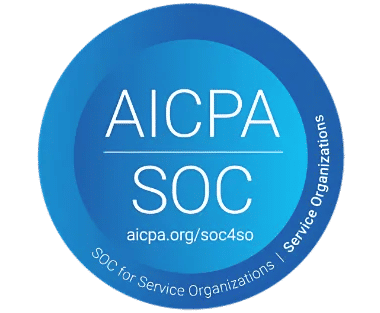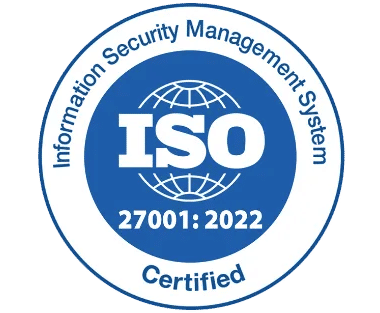How Does Employee Directory Software Enhance Collaboration in Remote Teams?

Remote work has shifted from a temporary fix to a lasting part of the global workplace, offering flexibility but challenging team communication and collaboration without shared physical space.
Employee Directory Software helps overcome remote work challenges by connecting employees, boosting productivity, and enabling seamless communication.
Why is Remote Collaboration Important?
As more companies embrace hybrid and remote work environments, collaboration is key to keeping teams aligned and productive. Here’s why remote collaboration is so critical:
- Maintaining Team Cohesion: Without in-person interactions, remote teams need efficient communication tools to ensure that all members are aligned with project goals, tasks, and deadlines. The employee database acts as a digital bridge between team members, making it easy to find the right person and fostering stronger relationships.
- Boosting Productivity: Disjointed communication can lead to delays in decision-making, miscommunications, and productivity losses. Remote collaboration tools, such as employee directories, help by speeding up the process of finding colleagues, experts, or resources needed for tasks, reducing downtime and inefficiency.
- Enhancing Flexibility and Scalability: Remote work provides flexibility, but managing that flexibility across different time zones, departments, and roles can be challenging. Employee database ensures that remote employees have quick access to each other’s contact details and availability, making the team more flexible and scalable as business needs evolve.
- Encouraging Innovation: Collaboration fuels innovation, and with the right tools, remote teams can collaborate effectively across departments and locations. Employee directories make it easy to identify individuals with diverse skills, enabling cross-functional teams to come together and solve problems creatively.
How Employee Directory Software Enhance Collaboration?

Now that we understand the importance of remote collaboration, let’s dive into how Employee Directory Software can enhance it.
Improved Access to Employee Information
One of the core benefits of the employee contact list application is providing quick and easy access to vital employee information. In a remote team, where face-to-face interactions are limited, having an accessible digital directory can streamline communication.
- Centralized Information: Instead of digging through emails or company databases, team members can instantly find contact details, roles, departments, and even expertise or skill sets.
- Profile Customization: Employee directories often allow for personalized profiles where team members can share project experiences, skills, and achievements. This helps remote employees know more about their colleagues and locate individuals with specific knowledge for project collaborations.
- Global Time Zones & Availability: Remote work often means managing different time zones. A directory that shows time zones or working hours ensures that employees can coordinate effectively without interrupting someone outside their work hours.
Enhanced Cross-Departmental Collaboration
For companies with global operations, storing employee information plays a crucial role in breaking down silos between departments. Remote teams, particularly in large organizations, can often feel disconnected from the rest of the company. A digital directory bridges this gap by:
- Fostering Cross-Department Connections: Employee database enables teams to easily connect with members of other departments, facilitating collaboration on cross-functional projects.
- Encouraging Knowledge Sharing: By identifying subject matter experts within the directory, team members can seek help or mentorship from colleagues outside their immediate network, fostering a collaborative learning environment.
Improved Team Building and Employee Engagement
Remote teams often struggle to build personal connections compared to in-office environments. Employee directory application can improve team building and engagement by creating a digital space where employees can get to know each other better.
- Enhanced Profiles: Many directories allow for rich profiles, where employees can add more than just professional information. They can share personal hobbies, interests, or even fun facts, helping to humanize remote colleagues.
- Organizational Hierarchy Visibility: Understanding the company hierarchy is critical for remote workers, who may not interact with upper management often. Employee directory software gives transparency into organizational structures, allowing remote teams to see how they fit into the larger company ecosystem.
- Internal Social Features: Some directory systems offer integrated social features like employee spotlights, peer recognition, or virtual collaboration events, which enhance engagement in distributed teams.
Streamlined Onboarding for Remote Employees
Onboarding new employees remotely is no easy task. Employee directory application simplifies this process by providing immediate access to essential contacts and company structure. New hires can quickly understand the team dynamics, identify key contacts, and settle into their roles faster.
- Instant Access to Key Contacts: New employees can access the directory to find their team, HR, IT support, or any other essential contact without the need for tedious introductions.
- Clarified Reporting Structures: In remote work environments, knowing who reports to whom can be confusing. The directory provides clear insights into reporting lines, making it easy for new hires to understand their role in the organization.
- Self-Service Information: Remote employees may feel disconnected if they don’t know who to contact for specific issues. A directory that provides a wealth of information allows them to independently find the resources they need to succeed.
Boosted Productivity through Efficient Communication
For remote teams, productivity depends on how well they can communicate and collaborate across distances. The employee directory app can play a pivotal role in speeding up internal communications, ensuring team members get the information they need faster.
- Integrated Communication Tools: Many employee’s directory systems integrate with communication platforms like Microsoft Teams or Zoom. This integration allows employees to initiate conversations directly from the directory, avoiding delays.
- Team Contact Groups: Directory software often allows the creation of custom contact groups for project teams. This streamlines communication, as team members don’t need to manually enter each colleague’s email or chat ID every time they need to collaborate.
- Searchable Skill Sets: Advanced directories let employees search for colleagues by skill set, which is useful when forming cross-functional teams or finding experts for specific projects.
Improved Compliance and Documentation Management
Remote work requires transparency in communication and data security, especially when dealing with sensitive information. Employee directory software supports compliance and security protocols by ensuring accurate and up-to-date information.
- Audit Trails: In industries with strict regulatory requirements, such as healthcare or finance, employee directory applications help track who accessed or updated specific information, making audits easier.
- Updated Contact Information: In remote setups, ensuring that employee contact information is accurate is crucial, especially for compliance or emergency situations. Directory software helps maintain up-to-date records across the board.
- Secure Access Levels: Admins can control access to sensitive data within the directory, ensuring only the right people can view or edit specific information.
Enhancing the Employee Experience in Remote Work
A well-implemented employee database can significantly enhance the overall remote work experience by making it easier for team members to stay connected, access resources, and collaborate effectively. The more engaged employees are with the tools available, the better the collaboration and productivity.
- Fostering Transparency: The directory promotes transparency in remote teams by making organizational structures, roles, and responsibilities clear and accessible to everyone.
- Encouraging Collaboration Beyond Borders: By eliminating geographical barriers, employee database allows for seamless collaboration across different offices, countries, and time zones, fostering a truly global team experience.
Conclusion: The Future of Collaboration in Remote Teams
Employee Directory Software is more than just a list of names and contact information. For remote teams, it’s a powerful tool that fosters connection, boosts productivity, and simplifies collaboration across geographies. As companies continue to embrace remote and hybrid work models, leveraging Employee Directory 365 will be key to ensuring that teams remain connected and engaged.
Integrating Employee Directory 365 into your remote work toolkit ensures that your team has the necessary resources to collaborate effectively, regardless of where they are working. Start optimizing your team’s communication today – Try Employee Directory 365 now!
Frequently Asked Questions
1. Can Employee Directory Software help improve team productivity?
Yes. By providing centralized and easily accessible employee information, directory software reduces the time spent searching for the right person or expertise. It integrates with communication platforms and streamlines internal collaboration, resulting in faster decision-making and higher productivity.
2.Does Employee Directory Software help with onboarding new remote employees?
Yes. New remote hires can quickly access essential contacts, understand organizational structures, and connect with relevant team members. It simplifies the onboarding process by providing a one-stop platform for learning about the company and finding support during their transition.
3. What kind of information can be stored in Employee Directory Software?
The software typically stores contact details, job titles, departments, team members, skills, work hours, and geographical locations. Some advanced software also includes personal interests, project histories, and other custom fields to enhance employee profiles.









_svxLrd-8yH.png)

_2VYSFUTN5m.png)

_JiluXJRGNl.svg)

_2djTKNocf.png)





_Rapo0hRMBy.png)










